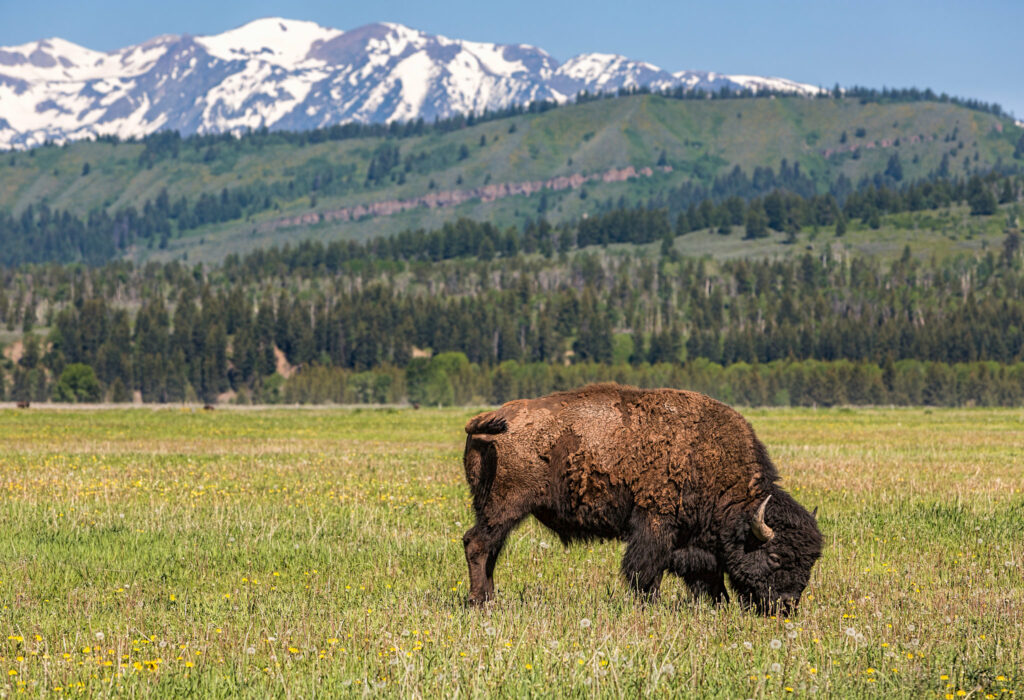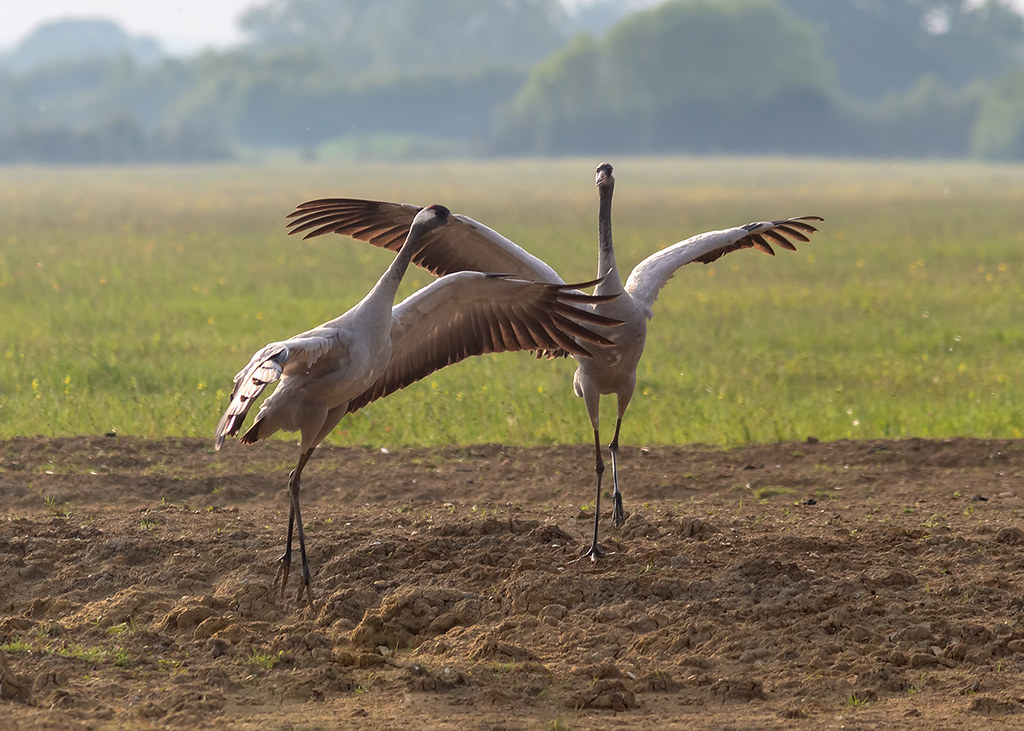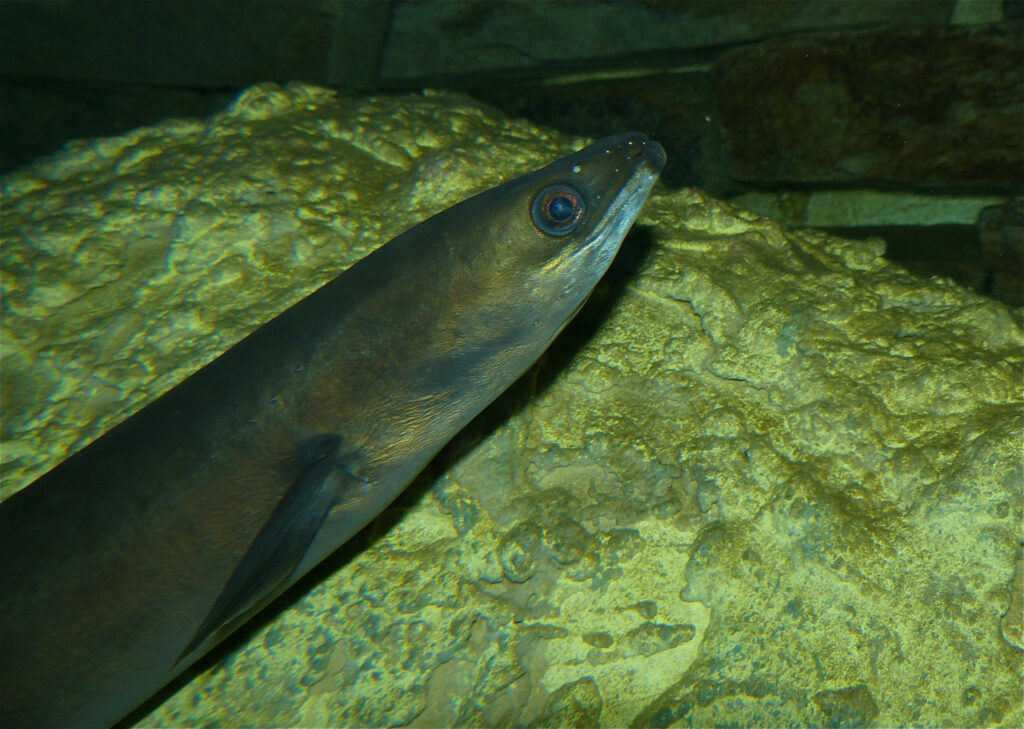Conservation
More than 20,000 bison, in 65 herds, are now owned by 82 Native American tribes across the US. Once roaming North America’s Great Plains in the tens of millions, bison were slaughtered to near extinction by European settlers. Previously, conservation efforts for this species have excluded Native Americans but now this cultural connection is being rekindled, increasing food security, reclaiming sovereignty and improving land management.

More than 50 shark species are to be given protection from over-exploitation. Nearly 200 countries voted to add them to the list of species protected under global trade rules. This includes tiger sharks, blacktip sharks, the bonnethead and blue sharks. The two shark families, requiem sharks and hammerhead sharks, that these species belong to make up over 50% of the trade in shark fins for soup, with many species threatened with extinction. By listing them on CITES, trading products that contain these species will be much harder.
The largest-ever dam demolition will restore hundreds of miles of historical salmon habitat. Four ageing dams are set to be destroyed along the Klamath River in California and Oregon, a win for the Native American tribes and environmentalists that have been fighting for this for years. This $500 million proposal was approved in November and the project is slated to began next year, with the biggest removals taking place in 2024.
Cranes fledge young on the Suffolk coast for the first time. The RSPB recorded two successfully raised chicks at Snape Wetlands Nature Reserve by a pair of cranes. Only around 65 pairs breed in Britain each year. This is a great sign for the relatively new reserve: the original 82ha graslland was converted to wetland and reedbed between 2008-2014. The RSPB has said it will continue to manage the wetlands to encourage more cranes to breed at the site.

New discoveries
A new seaweed species has been discovered more than 100 metres below the surface of the Antarctic Ocean. The red algae, Palmaria decipiens, was found by a team that included researchers from the University of Aberdeen using a remotely operated vehicle. The project, funded by the UK Natural Environment Research Council, set out to clarify the maximum depths that seaweed could grow in Antarctica. Samples were collected for further examination and DNA sequencing was then used to confirm the type of seaweed.
Extinction risk
The Mount Ballow mountain frog, only discovered earlier this year, is already facing extinction, despite living in a World Heritage rainforest. Scientists have warned that the species could become extinct by 2055 due to the impacts of climate change reducing the availability of suitable habitats. These frogs are currently stranded on an ‘island in the sky’ due to habitat loss within the upland mountain rainforests of the Gondwana Rainforests of Australia, and occupy a very narrow niche. 91% of this ecological niche would be lost under a worst-case scenario of three degrees warming, according to lead author Liam Bolitho.
Calls for a ban on eel fishing from an intergovernmental scientific organisation are challenging the UK and EU to step up on the extinction crisis. Juvenile populations of this snake-like fish have crashed by between 95-99% since 1980. The Internation Council for Exploration of the Sea (ICES) now advise that fisheries catch no European eel in 2023. With the UN Biological Conference currently taking place, now is the time for European countries to make the right commitments.

Climate Change
A survey has found that 80% of Scots fear climate change impacts on Scotland’s nature. The research, conducted for charities network Scottish Environment LINK, also found that pollution and ocean warming are also major fears. Just over 1,000 Scots were interviewed between 31st October and 6th November. Nearly a third of those polled stated thay were “very concerned” about the impact of climate change on Scotland, with 50% saying they were “quite concerned”. Just 14% put that they were “not that concerned”, and only 3% stated they were “not at all concerned”.
Policy
A number of MPs are backing the bill to ban trophy hunting overseas, in hopes to protect many endangered animals that are being hunted to the brink of extinction. Support currently includes the MPs for East Yorkshire, North Devon and Milton Keynes. The bill, which has cross party support, would ban British hunters from bringing ‘trophies’ of endangered and vulnerable animals into Britain. The bill has passed its second reading and it is now preparing for the committee stage of its progress through Parliament, which is expected to take place in the New Year.
Research
Tissue loss, decay and death, along with widespread coral bleaching, were reported across the northern coastline of New Zealand last year, impacting hundreds of thousands of specimens. Latest research shows that the most severe impacts on sponges occurred in areas where a prolonged marine heatwave was most intense. These organisms serve a number of important ecological functions, including filtering large quantities of water and moving carbon from the water column to the seafloor. A major loss in coral species would change the community structure of the ecosystem within that habitat, having widespread impacts on a variety of species.

